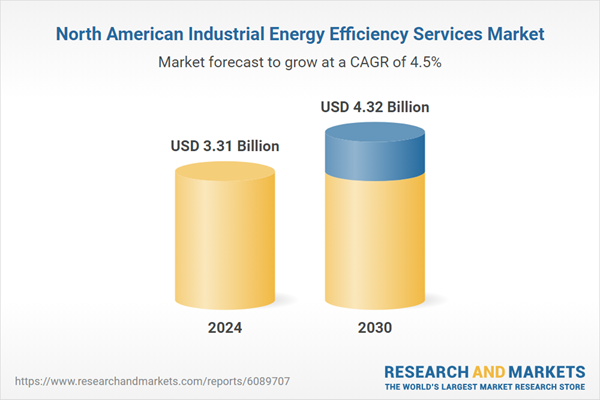Speak directly to the analyst to clarify any post sales queries you may have.
10% Free customizationThis report comes with 10% free customization, enabling you to add data that meets your specific business needs.
Key Market Drivers
Increasing Energy Costs Leading to Greater Demand for Energy Efficiency Services
Rising energy prices are a significant catalyst for the growth of the North America Industrial Energy Efficiency Services Market. Energy represents a substantial portion of operational expenses for industries, especially those with high energy demands such as chemicals, metal production, and manufacturing. As costs escalate, businesses are increasingly turning to energy efficiency services, which provide targeted solutions like audits, system upgrades, and process optimization to minimize waste and lower utility bills. These services not only improve operational efficiency but also align with sustainability goals and regulatory expectations. As energy expenses can comprise up to 20% of operational budgets in energy-intensive sectors, the drive to reduce these costs is intensifying. Moreover, adopting energy efficiency strategies strengthens companies’ environmental credentials, which is becoming an important consideration for stakeholders and consumers alike.Key Market Challenges
High Initial Investment Costs for Energy Efficiency Technologies
A major barrier to adopting industrial energy efficiency services is the substantial upfront investment required for implementation. Upgrading to energy-efficient machinery and systems often involves high capital expenditures that many companies - particularly small and medium-sized enterprises - struggle to afford. Despite long-term cost benefits, the lengthy payback periods can be discouraging.The financial burden is even more pronounced in industries operating under narrow profit margins or during periods of economic uncertainty. Although government incentives and rebates exist, limited awareness and accessibility hinder broader adoption. Additionally, the complexity of deploying such technologies across large-scale operations further inflates initial costs, making it difficult for some companies to justify the investment. This cost-related challenge continues to restrict widespread implementation and slows market growth.
Key Market Trends
Growing Adoption of Digital Technologies for Energy Management
The increasing incorporation of digital technologies is transforming the North America Industrial Energy Efficiency Services Market. Companies are embracing tools such as IoT, AI, machine learning, and advanced analytics to manage and monitor energy usage with greater precision. These technologies enable real-time insights into consumption patterns, facilitating proactive decisions that enhance energy optimization. Digital platforms also support predictive maintenance and rapid anomaly detection, minimizing downtime and reducing inefficiencies. This tech-driven shift not only contributes to substantial cost savings but also helps industries achieve their sustainability targets. As digitalization continues to evolve, its adoption is expected to accelerate, further driving advancements and efficiency across industrial operations.Key Market Players
- Johnson Controls International Plc
- Siemens AG
- Schneider Electric SE
- Honeywell International Inc.
- ABB Ltd.
- Eaton Corporation plc
- Rockwell Automation, Inc.
- Trane Technologies
Report Scope:
In this report, the North America Industrial Energy Efficiency Services Market has been segmented into the following categories, in addition to the industry trends which have also been detailed below:North America Industrial Energy Efficiency Services Market, By Industry Type:
- Manufacturing
- Agriculture
North America Industrial Energy Efficiency Services Market, By Service Type:
- Energy Audits
- Consulting Services
North America Industrial Energy Efficiency Services Market, By Technology:
- Building Management Systems
- Energy Management Software
North America Industrial Energy Efficiency Services Market, By Country:
- United States
- Canada
- Mexico
Competitive Landscape
Company Profiles: Detailed analysis of the major companies present in the North America Industrial Energy Efficiency Services Market.Available Customizations:
With the given market data, the publisher offers customizations according to a company's specific needs. The following customization options are available for the report.Company Information
- Detailed analysis and profiling of additional market players (up to five).
This product will be delivered within 1-3 business days.
Table of Contents
Companies Mentioned
- Johnson Controls International Plc
- Siemens AG
- Schneider Electric SE
- Honeywell International Inc.
- ABB Ltd.
- Eaton Corporation plc
- Rockwell Automation, Inc.
- Trane Technologies
Table Information
| Report Attribute | Details |
|---|---|
| No. of Pages | 120 |
| Published | May 2025 |
| Forecast Period | 2024 - 2030 |
| Estimated Market Value ( USD | $ 3.31 Billion |
| Forecasted Market Value ( USD | $ 4.32 Billion |
| Compound Annual Growth Rate | 4.5% |
| Regions Covered | North America |
| No. of Companies Mentioned | 8 |









